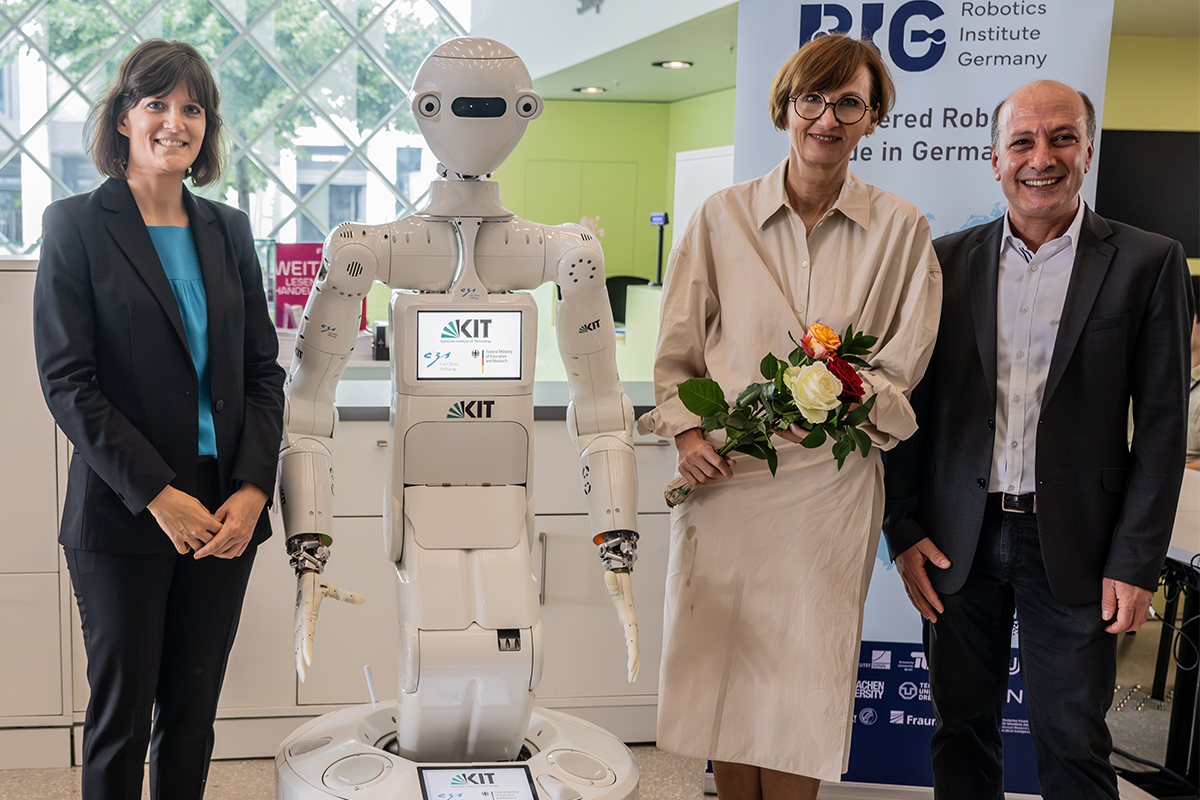With RIG, researchers aim to strengthen Germany's global competitiveness and technological leadership in AI-based robotics.
It is to become the central contact point for robotics in Germany: The Robotics Institute Germany (RIG) will begin its work on July 1, 2024. It is being set up under the leadership of the Technical University of Munich (TUM) with the participation of the Karlsruhe Institute of Technology (KIT) as well as eight other universities and four non-university research institutions.
"We are at the beginning of a new industrial revolution: the fusion of robotics and artificial intelligence," says RIG spokesperson Tamim Asfour from KIT. "This transformation will fundamentally change the way we live and work. Robotics and AI will be the driving force behind innovations in almost all areas of life - from industrial production and healthcare to mobility and beyond."
Pooling existing potential and utilizing synergies
"I am delighted that together we have managed to establish a robotics network with such strong partners from universities and non-university institutions for this pioneering concept of AI-based robotics," says RIG coordinator Angela Schoellig from TUM, citing the strategic goals of strengthening the international visibility of robotics in Germany, the targeted promotion of talent and the transfer of research results.
The starting conditions are good: roboticists in Germany are among the international leaders in AI-based robotics and have made significant contributions to the global robotics landscape. However, Germany has so far lacked a strategic approach that bundles the existing potential and uses it synergistically to secure the country's long-term competitiveness and promote excellence and economic growth, says Tamim Asfour. "We will establish the RIG as a nationally recognized and internationally unique institute that shapes cutting-edge research, education and innovation in AI-based robotics and aligns it with Germany's needs."
The RIG is being funded by the Federal Ministry of Education and Research (BMBF) for an initial period of four years with 20 million euros.
Further information: https://www.tum.de/aktuelles/alle-meldungen/pressemitteilungen/details/robotics-institute-germany-gegruendet

Prof. Angela Schoellig from TUM (left), Federal Research Minister Bettina Stark-Watzinger (center) with Prof. Tamim Asfour from KIT at the presentation of the RIG in Berlin. Also present: ARMAR-7 robot from KIT. (Photo: BMBF/Hans-Joachim Rickel)
